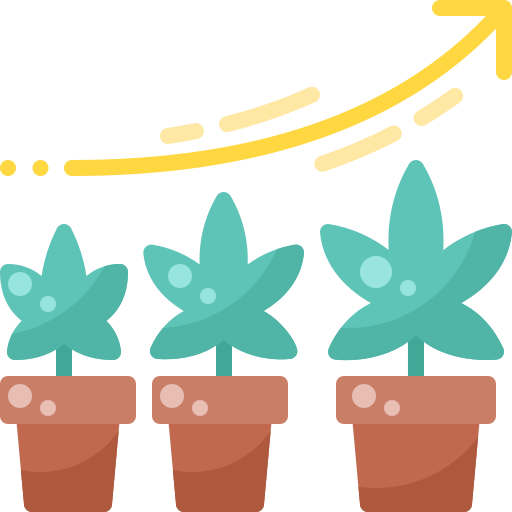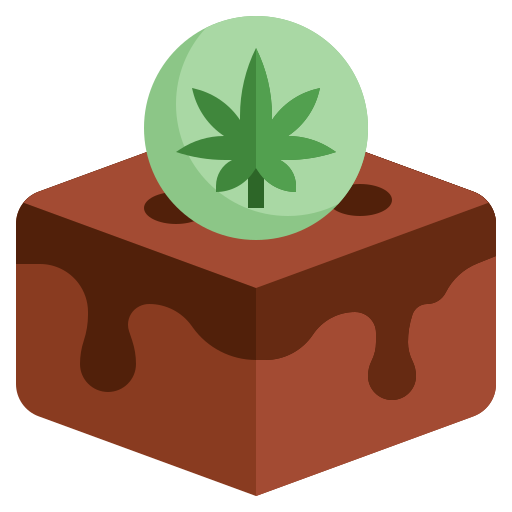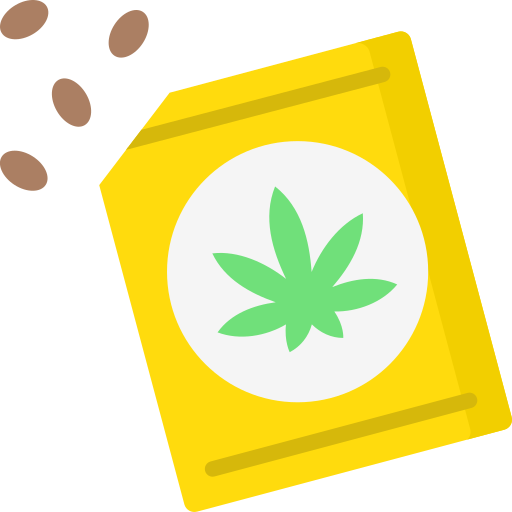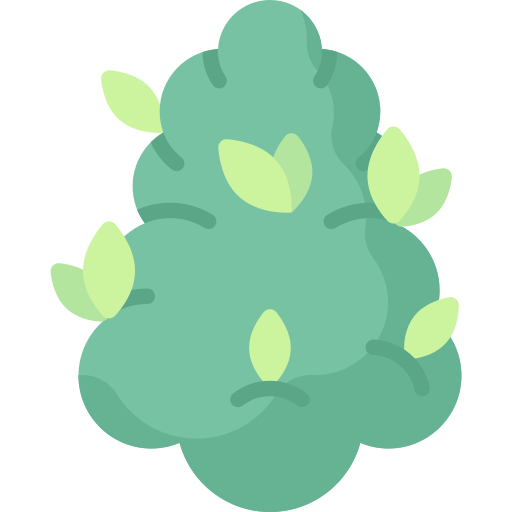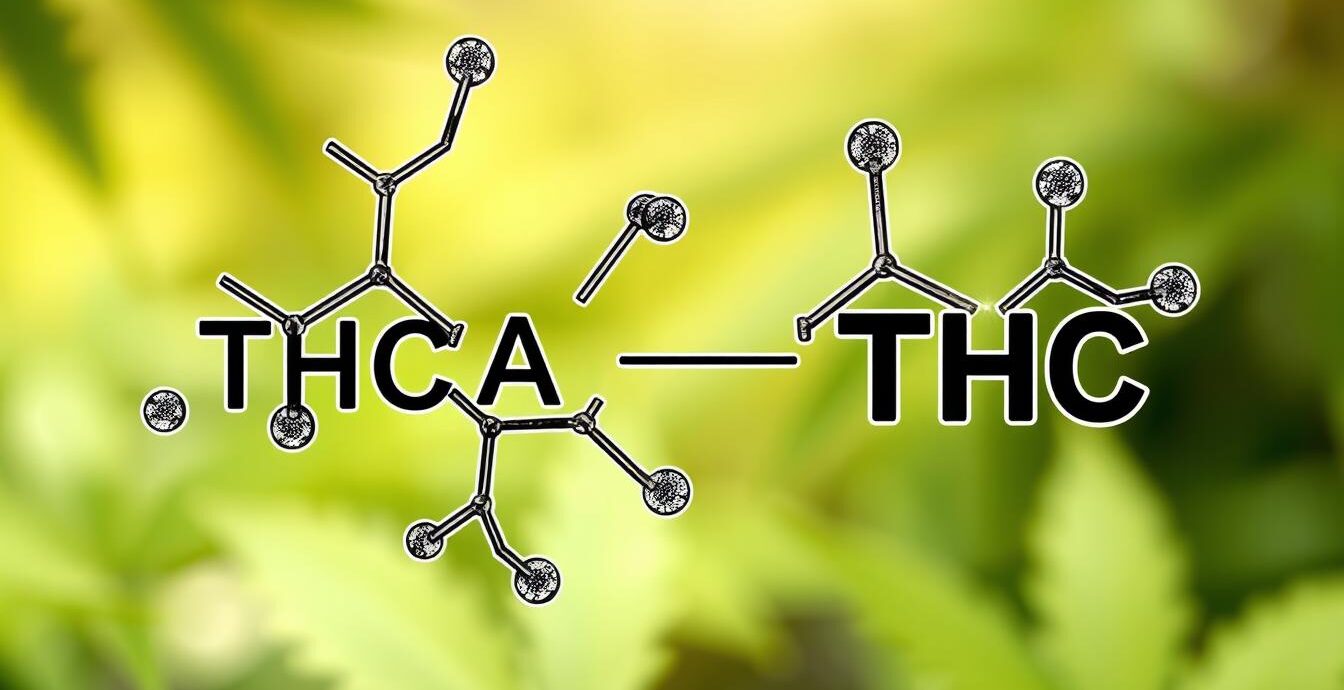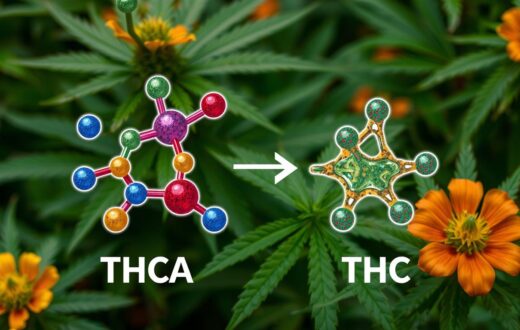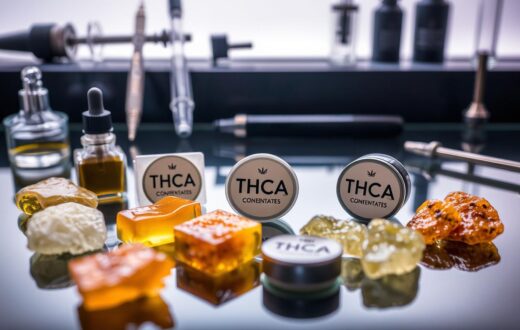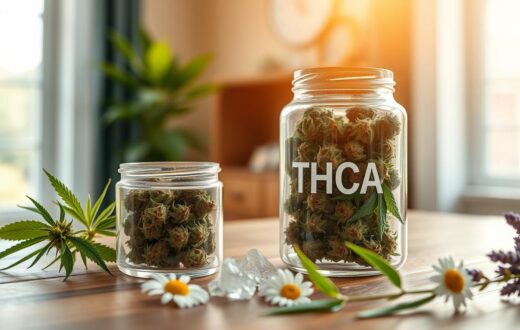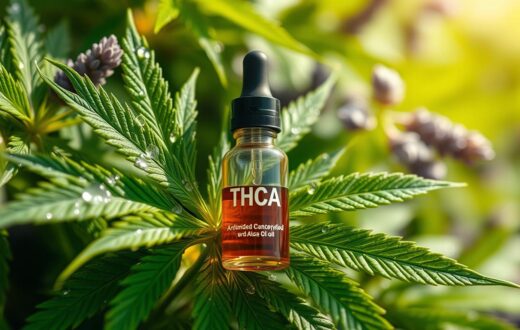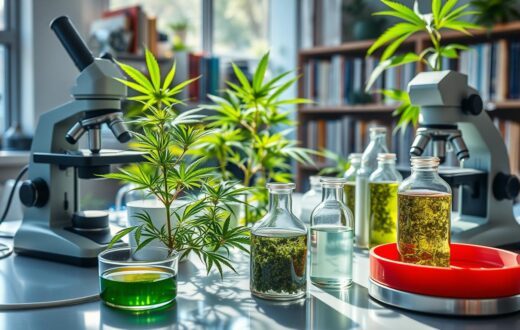Ever wondered why raw cannabis doesn’t get you high? It’s all about the fascinating world of cannabinoids, like THCA and THC. These compounds are key to the plant’s effects on us, but their differences are often not clear.
THCA, or tetrahydrocannabinolic acid, is found in fresh cannabis and doesn’t make you feel high. THC, or tetrahydrocannabinol, is what gives you the “high” from marijuana. Knowing these differences helps us understand cannabis’s full potential, for fun or health reasons.
Did you know there are over 500 cannabinoids in the cannabis plant? THCA and THC are special because of their unique effects on us. THCA turns into THC when heated, which is why smoking or vaping cannabis gets you high, but eating raw doesn’t.
Exploring THCA and THC, we’ll look at how they’re made, their benefits, and possible side effects. We’ll also discuss the laws around them and their medical uses. Whether you’re new to cannabis or have been using it for years, knowing the difference between THCA and THC is important for making smart choices.
Understanding Cannabis Compounds
The cannabis plant is full of complex chemicals. These chemicals are key to how the plant affects us. Let’s dive into the world of cannabinoids and their role in medicine.
What are Cannabinoids?
Cannabinoids are natural substances in the cannabis plant. They work with our body’s endocannabinoid system. This system controls things like mood, hunger, and pain. THC and THCA are two well-known cannabinoids.
The Role of Cannabis in Medicine
Cannabis is being studied for its medical uses. Research shows that cannabinoid acids may fight inflammation, nausea, and pain. They might even protect the brain. This has sparked interest in using cannabis for different health issues.
The Chemical Structure of THCA and THC
THCA and THC look similar, but THCA has an extra group. This small difference is big. THCA doesn’t get you high, but THC does. Heat turns THCA into THC, making it psychoactive. This is important for understanding tincture benefits and how cannabis products work.
The Nature of THCA: Tetrahydrocannabinolic Acid
THCA, or tetrahydrocannabinolic acid, is found in raw cannabis. It’s the precursor to THC, the psychoactive part of marijuana. Unlike THC, THCA doesn’t cause a high but is still of interest for its health benefits.
How THCA is Produced
THCA naturally occurs in the trichomes of raw cannabis plants. As the plant grows, it makes THCA. This compound stays stable until it’s exposed to heat or light, turning it into THC.
This change, called decarboxylation, is why smoking or vaping cannabis leads to psychoactive effects.
The Benefits of THCA
Research shows THCA may have several health benefits. Studies on mice have found anti-inflammatory and neuroprotective effects. It might also help lower proteins linked to Alzheimer’s disease.
Some people use THCA tinctures for pain relief. It could also help with nausea and increase appetite.
Potential Side Effects of THCA
While THCA is generally safe, it can cause side effects in some. These include nausea, upset stomach, itching, and skin rashes. It’s crucial to remember that most THCA studies were on animals.
More research is needed to understand its effects on humans. Always talk to a healthcare provider before using THCA products.
The Nature of THC: Tetrahydrocannabinol
THC, or tetrahydrocannabinol, is the main attraction in cannabis. It’s the compound that gives marijuana its famous kick. Let’s explore how THC works its magic and what it can do for you.
How THC is Produced
THC starts as THCA in raw cannabis plants. When you heat cannabis, THCA turns into THC. This happens when you smoke, vape, or cook with weed. THC then binds to cannabinoid receptors in your brain, causing those well-known psychoactive effects.
The Benefits of THC
THC isn’t just about getting high. It can help with pain, boost appetite, and ease nausea. Many people use THC for these reasons. You can find THC in various forms like capsules, tinctures, and gummies. These different products offer unique tincture effects and ways to experience THC’s benefits.
Potential Side Effects of THC
While THC has its perks, it’s not all smooth sailing. Some folks might feel anxious or have memory issues. Dry mouth and a racing heart are common too. Using a lot of THC over time could lead to bigger problems. It’s smart to know both the good and bad before diving in.
The Psychoactive Properties of THC
THC, the main psychoactive part in cannabis, makes people feel euphoric. It works with our brain in special ways. This leads to different feelings and views.
Understanding the “High” Experience
When THC gets into our body, it starts a chain of reactions. People often feel happy and relaxed. This change in how we see things can make colors, sounds, or tastes seem better.
The strength of these feelings can change. This depends on how much tincture is used and how well our body handles it.
How THC Affects the Brain
THC’s strength comes from how it connects with CB1 receptors in our brain. These receptors are part of our endocannabinoid system. This system helps control mood, memory, and pain.
When THC turns on these receptors, it causes the “high” feeling from cannabis.
Comparing Psychoactivity in THCA vs THC
THCA doesn’t make us feel high when we eat it raw. This is because it doesn’t easily connect with brain receptors. But when THCA is heated, it turns into THC.
This change makes it psychoactive. Knowing this is important for those who want certain effects from their cannabis.
Legal Status of THCA and THC
Cannabis laws in the United States are complex and keep changing. The rules for THCA and THC differ at the federal and state levels. Hemp products with less than 0.3% THC are legal under federal law. This includes THCA, which doesn’t get you high in its raw form.
Federal vs. State Regulations
While hemp THCA is legal at the federal level, THC from marijuana is still controlled. State laws vary a lot, making rules different everywhere. Some places allow both medical and recreational use, while others are strict.
Implications for Consumers
Legal rules affect how people can get cannabis products. In places where marijuana is banned, THCA products are popular because they’re legal. But, remember, THCA turns into THC when heated, which can show up in drug tests.
Tracking Legal Developments
Cannabis laws are changing fast. The Mary Miller Amendment could change the hemp industry a lot. Tincture laws also vary by state, so it’s important to know the local rules. As more research comes in, we might see more changes in THCA and THC laws.
Medical Uses of THCA
THCA is a non-psychoactive form of THC found in raw cannabis. It has caught the eye of researchers for its potential medical benefits. Studies show it might be good for managing pain and protecting the brain.
Research on THCA Efficacy
Research suggests THCA could have anti-inflammatory properties. This makes it interesting for treating arthritis and inflammatory bowel disease. It also shows promise in fighting neurodegenerative disorders.
THCA in Pain Management
THCA might help with chronic pain, early studies suggest. It doesn’t cause the “high” that THC does. This makes it a good choice for those looking for pain relief without the psychoactive effects.
Current Clinical Trials for THCA
There are ongoing clinical trials to learn more about THCA’s benefits. Researchers are looking into its use in cannabis tinctures for easier use. While more studies are needed, the early signs are promising for its role in future medical treatments.
Medical Uses of THC
THC, the psychoactive part of cannabis, is being studied for its medical uses. It shows promise in many health areas. Let’s look at some key findings on THC’s medical benefits.
Research on THC Efficacy
Studies show THC works with our body’s endocannabinoid system. It binds to CB1 receptors in the brain. This is why it helps with nausea, appetite, and pain.
THC for Chronic Pain Relief
THC is a big help for chronic pain. Many people with long-term pain find relief with THC. It changes how we feel pain, offering a new way to manage it.
THC and Mental Health Treatments
THC also helps with mental health issues. It might ease PTSD and anxiety symptoms. Users say it improves their mood and reduces stress. Tinctures are popular because they’re easy to use and work fast.
But, THC’s psychoactive effects are a concern. They might not be right for everyone. More research is needed to understand THC’s benefits and risks. As we learn more, THC’s role in medicine will grow.
Methods of Consumption: THCA vs THC
Cannabis comes in many forms for both THCA and THC. You can choose based on whether you want the benefits without the high or the classic cannabis buzz.
Forms and Products Available
THCA products include raw cannabis flower and juices. These keep THCA’s non-psychoactive benefits. THC products range from dried flower to edibles. Tinctures can be rich in either THCA or THC. Topicals with either compound are great for local relief.
Routes of Administration
THCA is best consumed raw to keep its non-psychoactive effects. This means juicing or eating raw cannabis. THC is often smoked or vaporized. Edibles give a longer-lasting effect for both compounds. Tinctures are absorbed quickly when taken under the tongue.
Dosing Considerations
Dosing depends on the method and your tolerance. THC beginners should start with 5-10 mg in edibles. THCA doses in raw cannabis juice are 10-20 mg. Always start low and increase slowly, especially with THC. Remember, heating THCA turns it into THC, changing its effects and legal status.
Differences in Effects: THCA vs THC
THCA and THC come from the cannabis plant but have different effects. Their impacts on the body are quite different. Let’s look at how these compounds affect us in the short and long term.
Short-Term Effects
THC is known for its psychoactive effects. It can make you feel high, changing how you see things. THCA, however, doesn’t make you feel high. It’s non-intoxicating, making it good for those looking for health benefits without the high.
Long-Term Effects
Using THC regularly can lead to needing more to feel the same effects. It can also cause dependency. THCA’s long-term effects are still being studied. But, it might help with inflammation and protect the brain without the risk of dependency.
User Experience Variability
The effects of THCA and THC can vary a lot. Things like how you take it, how much you take, and your body’s biology matter. THC might help with relaxation and pain, while THCA could help with inflammation and nausea. It’s important to think about your health goals when choosing between THCA and THC.
The Importance of Decarboxylation
Decarboxylation is a crucial step in making cannabis products. It turns raw cannabis into something potent. This process is key to unlocking the plant’s full potential, especially for its potency.
What is Decarboxylation?
Decarboxylation is a chemical reaction that changes cannabis compounds. It turns THCA, a non-psychoactive form, into THC. THC is what gives you the “high” feeling. Heat is the main way to do this conversion.
Converting THCA to THC
Heat makes THCA turn into THC. When you smoke or vaporize cannabis, this happens right away. For edibles or tinctures, you need to decarboxylate separately. This step is crucial for making sure your product is strong and works well.
Practical Implications for Users
Knowing about decarboxylation is important for cannabis users. It changes how you prepare and use cannabis products. For instance, making edibles requires decarboxylation to get the psychoactive effect. This knowledge helps users get the effects they want and enjoy their cannabis more.
Combining THCA and THC
When we mix THCA and THC, we open up a new world of benefits. The cannabis plant has over 100 cannabinoids, each with its own special powers. This variety lets us discover exciting ways these cannabinoids can work together.
The Entourage Effect Explained
The entourage effect says that cannabinoids are better together. THCA, the raw form of THC, can boost the effects of THC. This mix might give you a more balanced feeling, helping with relaxation and pain relief.
Potential Benefits of Combination
Combining THCA and THC can change how strong and what kind of effects you get. THCA might help with inflammation and protect your brain, while THC is known for its happy feelings. Some people find this mix helps with nausea and boosts their mood.
Future Research Directions
Scientists are looking into the best mix of THCA and THC for different uses. They want to learn how these cannabinoids work together in things like tinctures. As more people try THCA blends, we’ll likely see more studies on their health benefits.
Even though cannabinoids are usually safe, it’s smart to talk to a doctor before trying new cannabis products. The field of combining cannabinoids is huge, and we’re just starting to see what it can do.
Choosing Between THCA and THC
Choosing between THCA and THC for medical cannabis depends on your health needs and legal status. It’s important to consider what you want to achieve and what’s legal in your area.
Personal Health Considerations
THCA is good for those who want relief from inflammation and neurodegenerative conditions without getting high. THC, however, is known for its strong pain relief and can help with stress and appetite. If you’re looking for a recreational high, THC is the better choice.
Preferences for Psychoactivity
For those who want to avoid getting high, THCA is the way to go. It doesn’t affect the brain’s CB1 receptors, keeping you alert. THC, on the other hand, does bind to these receptors, causing the typical cannabis high. Be careful, as smoking or vaping can turn THCA into THC.
Access and Availability
The availability of THCA and THC products varies by location. In places where cannabis is legal, you’ll find many options, including tinctures and edibles. It’s important to start with a low dose, especially with THC products. Always talk to a healthcare professional to find the best option for you.
Conclusion: Key Takeaways on THCA and THC
Let’s summarize the main points about THCA and THC. THCA is found in raw cannabis and doesn’t get you high. It turns into THC when heated or exposed to sunlight.
Summary of Differences
THCA doesn’t cause a “high,” but THC does. High-quality cannabis has 15-25% THC, which is linked to THCA levels. This is important for those wanting benefits without getting high.
Considerations for Use
Think about what you want and local laws when choosing between THCA and THC. THCA is good for daytime use because of its wellness benefits. THC gives a stronger effect. But, both can show up in drug tests, so be careful.
The Future of Cannabis Research
Research is showing the health benefits of both THCA and THC. People are exploring new ways to use cannabis, like tinctures. As studies continue and laws change, we’ll learn more about these compounds.
